Search Results
Showing results 1 to 20 of 39

Saldo Island: An Unfair Game
Source Institutions
In this environmental science activity about biodiversity, learners play a game to discover the effects of non-native species on an ecosystem.

Metamorphosis Matching
Source Institutions
This is an activity where learners will compare the different metamorphosis stages of amphibians.
Coincidental Colonization
Source Institutions
In this game of chance, learners will discover how organisms colonized the Galápagos Islands, experiencing how chance plays a role in the successful dispersal of species to new areas.

Envirolopes
Source Institutions
In this outdoor activity and observation game, learners hunt for a variety of textures, colors, odors and evidence of organisms in the activity site.

Variation Game
Source Institutions
In this set of outdoor games, learners play the role of monkeys that are trying to get enough resources (food, shelter, and space) to survive.

Dogs and More Dogs
Source Institutions
In this activity, learners play an evolution card game to see how selective pressures can affect an organism's evolution.

Caller ID: The Frog - and Toad! - Mating Game
Source Institutions
This activity is a sensory experience that recreates the sounds of a pond at night.
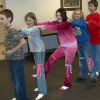
The Bug Walk
Source Institutions
In this fun group activity involving music and movement, learners are introduced to the idea that many insects walk by using their legs to create "alternating triangles." Learners sing the "Ants Go Ma

The Gator Pie Game
Source Institutions
In this activity, learners explore fractions as they help gators share pies.

Wolf Survival is Just a Roll Away
Source Institutions
In this simulation activity, learners will raise a pack of wolves under ten different conditions: without human interference and with human interference.
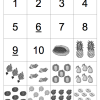
Memory Match
Source Institutions
In this classic memory game (on pages 37-45 of PDF), learners turn over tiles to reveal images on the back.

Fly on the Ceiling
Source Institutions
In this math lesson, learners play two different games to help them understand coordinates. First, learners read the book, "The Fly on the Ceiling," by Julie Glass.

Go Bug!
Source Institutions
By playing a card game similar to "Go Fish," but based on the stages of metamorphosis, learners will be able to see how insects change in form as they grow and will consider the advantages of undergoi

Wolf Survival
Source Institutions
In this activity, some learners pretend to be wolves, while the other learners pretend to be the prey of the wolf. The goal of the simulation is to have the wolves work together to survive.
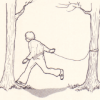
Tree Tally
Source Institutions
In this outdoor activity and fun race, learners first find the most common type of tree in a forest site.

Make your own Antelope Horns!
Source Institutions
In this craft activity, learners will explore the structure and purpose of antelope horns by constructing their own headband using toilet paper rolls and yarn.

Sustainable Fishing
Source Institutions
In this activity, learners use a model for how fishing affects marine life populations, and will construct explanations for one of the reasons why fish populations are declining.
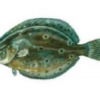
Ocean Home: Swimming Fishes
Source Institutions
In this activity, learners model, on a human-sized board game, how changes in water temperature may affect fish distributions and, ultimately, fisheries.
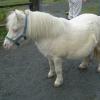
Wild or Domestic Animal Game
Source Institutions
In this quick activity (page 2 of PDF), learners will play a game using their observation and listening skills, interpreting clues from each other to deduce their secret animal identity.
Fish Family Identification
Source Institutions
In this game, students will become familiar with fish shapes, learn that fish within a given taxonomic family have similar body shapes, and discuss how different body shapes enable fish to survive in
